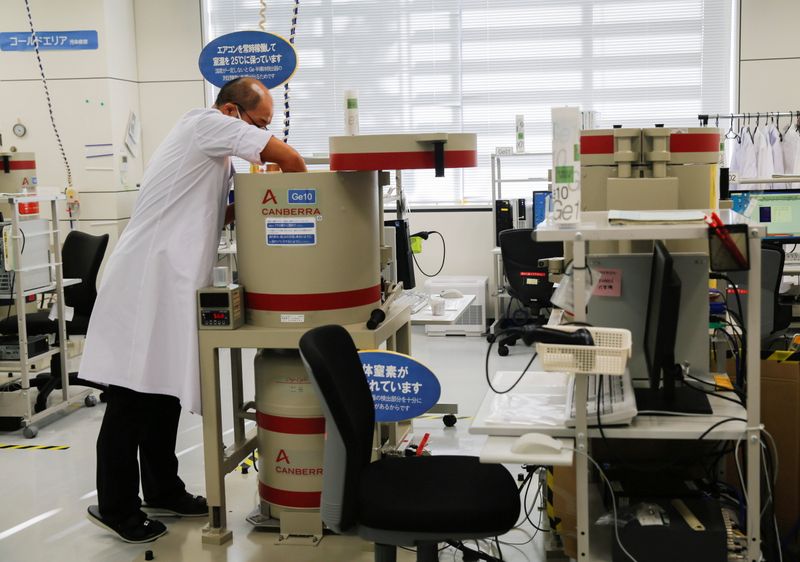Fukushima farmers fear contaminated water could hurt business 10

© Reuters. FILE PHOTO: A laboratory technician prepare tests for cesium levels in beef from cattle bred in Fukushima, at Fukushima Agricultural Technology Centre in Koriyama, Fukushima prefecture, Japan November 2, 2021. Picture taken November 2, 2021. REUTERS/Sakur
2/3
By Sakura Murakami
IWAKI, Japan (Reuters) – Farmers in Japan’s northeastern Fukushima fear the release of water from the crippled power plant there could revive concerns about contamination and again hit the price of their produce, undoing a decade of slow recovery from nuclear disaster.
Japan plans to release more than 1 million tonnes of contaminated water from the Fukushima plant into the sea from 2023 as part of an effort to clean up the site. Although international authorities support the plan, it has sparked concern from neighbours China and South Korea and worried local fisherman and farmers.
“We’re just about seeing our prices go back to normal after a big drop following the disaster, but now we will have to deal with the potential reputational damage all over again because of the release of the water,” said Hiroaki Kusano, a pear farmer and vice-leader of the local agricultural co-operative.
Last year, for the first time since the 2011 earthquake and tsunami devastated the northeast coast and triggered the nuclear disaster, the average price of Fukushima pears sold in Tokyo overtook those from some other prefectures, fetching 506 yen ($4.43) per kilo, data from the Tokyo Metropolitan Central Wholesale Market showed.
A year after the crisis, prices were at 184 yen a kilo, 20% below the average of more than 230 yen for other prefectures.
Fukushima’s produce goes through multiple checks for radioactivity, with farmers screening before shipment, while the prefecture also tests regularly.
Over the last decade, local produce has gone through a “thorough testing process, consistently” said Kazuhiro Okazaki of Fukushima’s Agricultural Technology Centre, which has screened produce for radioactive cesium since June 2011.
Fukushima produced 13,000 tonnes of pears in 2020, making it Japan’s fourth-largest source of the popular fruit, official data showed.
DECOMMISSIONING
The Daiichi plant is being decomissioned as part of a clean-up by operator Tokyo Electric Power Company Holdings (Tepco) expected to take decades.
Some 1,000 tanks, each 12 metres tall, crowd the site and hold enough radioactive water to fill around 500 Olympic-sized swimming polls. The release of water that once passed through contaminated areas of the plant marks a milestone in decommissioning and will free up space for the clean-up.
The water will be processed to remove radioactive contamination apart from tritium, which cannot be removed. Tritium-contaminated water will be diluted to levels that meet international standards and released into the ocean a kilometre out from the plant around spring 2023.
Tepco will compensate for damages related to the water release, said Junichi Matsumoto, a company…
Read More: Fukushima farmers fear contaminated water could hurt business 10
